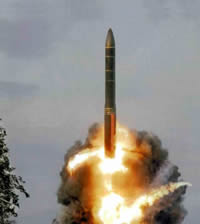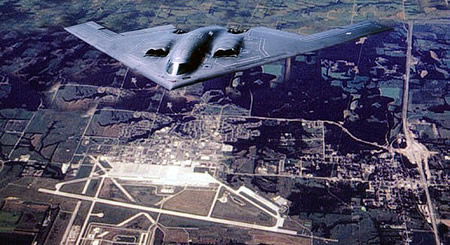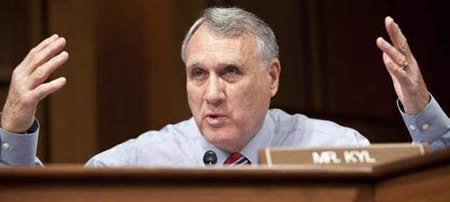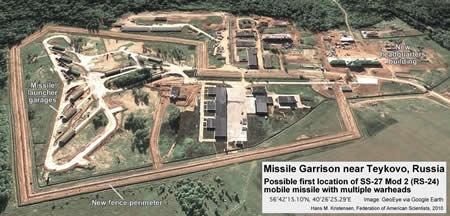New START Delay: Gambling With National and International Security
 |
| A few Senators are preventing US inspectors from verifying the status of Russian nuclear weapons. |
By Hans M. Kristensen
The ability of a few Senators to delay ratification of the New START treaty is gambling with national and international security.
At home the delay is depriving the U.S. intelligence community important information about the status and operations of Russian strategic nuclear forces. And abroad the delay is creating doubts about the U.S. resolve to reduce the number and role of nuclear weapons, doubts that could undermine efforts to limit proliferation.
New START may not be the most groundbreaking treaty ever, but it is a vital first step in moving U.S.-Russian relations forward and paving the way for additional nuclear reductions and nonproliferation efforts. Essentially all current and former officials and experts recommend verification of New START, and after more than 20 hearings and nearly 1,000 detailed questions answered it is time for the Senate to ratify the treaty.
Important Inspections
Ratification would set in motion a wide range of data exchange and on-site inspection activities. By delaying ratification, the Senators are depriving the U.S. intelligence community important information about Russian nuclear forces. Apart from monitoring how Russian strategic nuclear forces are evolving and operating, the information is important to avoid worst-case threat assessments that can negatively affect U.S.-Russian relations.
It has now been 348 days since the last U.S. inspection team left Russia.
During the 15 years the START Treaty was in effect between 1994 and 2009, U.S. teams conducted 659 inspections of Russian nuclear weapons facilities; Russian conducted 481 inspections of U.S. facilities.
The last U.S. on-site inspection took place on November 18-19, 2009, at an SS-25 mobile missile base near Teykovo, approximately 130 miles (210 km) northeast of Moscow.
.
That inspection had special meaning because the SS-25 is being phased out from this area and replaced with the new SS-27. While each SS-25 is equipped with one warhead, the SS-27 comes in two versions: one with a single warhead and one with three warheads. The U.S. intelligence community calls the latter the SS-27 Mod 2, while the Kremlin named it RS-24 so as to avoid conflict with the now expired START treaty.
One of the four bases at Teykovo has already been equipped with the SS-27 Mod 2, two still have the SS-25, while the fourth base has been emptied and might be converting to the newer missile. Within the next decade, all four bases may be equipped with the SS-27 Mod 2.
The Russians chose Whiteman Air Force Base in Missouri for their final on-site inspection in the United States. That inspection took place on December 1-2, 2009, just two days before the treaty expired.
| B-2 of the 509th Bomb Wing over Whiteman AFB |
 |
| Russia chose the B-2 base at Whiteman Air Force Base as its final inspection in the United States under the now expired START treaty. |
.
The Nonproliferation Gamble
From the outset, the Obama administration appears to have seen Russia as the main potential obstacle to the treaty, rather than the U.S. Senate. Absent a strategy to secure the votes for ratification early on, the tables have now turned; with the White House desperate to secure ratification, a few Senators who still see Russia through Cold War lenses have effectively managed to use hearings and voting rules to extort concessions (read: money) from the administration to modernize the nuclear weapons production complex and delivery systems.
| Senator Jon Kyl |
 |
| A few senators, most prominently Senator Jon Kyl (R-Arizona), have managed to delay ratification of the New START treaty. |
.
The administration quickly agreed to boost the FY 2011 budget for the National Nuclear Security Administration (NNSA) well above the FY 2010 level. But that didn’t satisfy the Senators. So when Congress was unable to approve the budget before the mid-term election, the administration agreed that a Continuing Resolution (CR) designed to keep federal agencies operating at FY2010 budget levels through December 3rd would include an exemption for NNSA’s weapons program to fund the agency at the higher FY 2011 budget request – about $7 billion or an additional $625 million. But since the provisions in the defense appropriations bill and report don’t apply to the CR, the appropriators have lost control of how the funds are used; Congress is basically providing NNSA with a blank check to spend the $7 billion.
In addition, in an effort to buy the Senators’ votes for ratification during the “lame duck” session before the new Congress begins, the administration has offered $600 million more for the FY 2012 NNSA budget above FY 2011 levels, as well as an additional $3.6 billion spread out over FY 2013-2016.
Altogether, in a nuclear spending spree that would have been inconceivable during the Bush administration, the Obama administration plans to spend well over $180 billion to modernize nuclear weapons delivery systems and production facilities over the next decade.
There is a real risk that in the coming years, this modernization could backfire and undermine the second pillar of U.S. nuclear policy: strengthening nonproliferation.
The reason is simple: U.S. nonproliferation efforts dependent upon international support, but if the international community sees the increased nuclear modernizations as contradicting the U.S. pledge to work toward nuclear disarmament, some countries may well decide not to support the administration’s nonproliferation agenda.
This risk could be compounded later this week if NATO approves a new Strategic Concept that reaffirms the importance of nuclear weapons – and fails to order the withdrawal of the remaining tactical nuclear weapons from Europe.
The Senate needs to demonstrate that it understands that the Cold War is over and that it cares more about national and international security than politics by ratifying the New START treaty before Christmas. And the administration must be careful to balance its nuclear modernization plans with the need to sustain the vision of nuclear disarmament that so inspired the international community just 18 months ago.
This publication was made possible by a grant from Carnegie Corporation of New York and Ploughshares Fund. The statements made and views expressed are solely the responsibility of the author.
The Pentagon’s new report provides additional context and useful perspectives on events in China that took place over the past year.
Successful NC3 modernization must do more than update hardware and software: it must integrate emerging technologies in ways that enhance resilience, ensure meaningful human control, and preserve strategic stability.
The FY2026 National Defense Authorization Act (NDAA) paints a picture of a Congress that is working to both protect and accelerate nuclear modernization programs while simultaneously lacking trust in the Pentagon and the Department of Energy to execute them.
While advanced Chinese language proficiency and cultural familiarity remain irreplaceable skills, they are neither necessary nor sufficient for successful open-source analysis on China’s nuclear forces.
